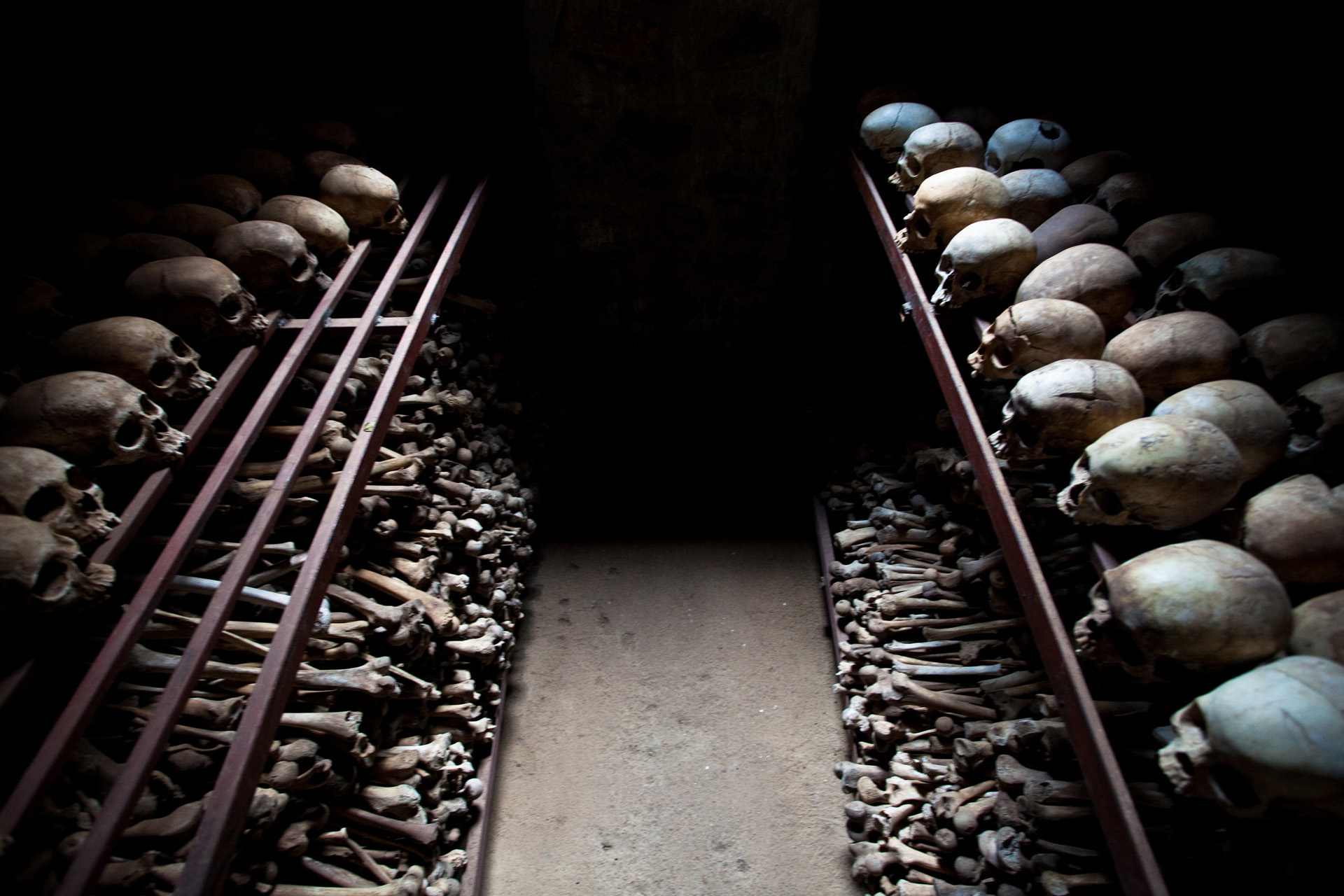
KIGALI, Rwanda (BP)–April is a time of annual mourning and remembrance in Rwanda as the nation reflects on the 1994 genocide in which more than 800,000 people were killed. Memorial services are being held across the country and many Rwandese are visiting mass graves where their loved ones are buried, still pained by the bloodshed that nearly destroyed a country.
For the past 17 years, Rwanda’s government has developed infrastructure and promoted unity among its citizens. People are no longer required to carry identity cards to determine their ethnicity; they are all simply Rwandans.
While unity is slowly growing, genuine forgiveness is difficult for most Rwandans, and many still suffer from the emotional trauma of seeing their families killed, often by neighbors or other people they knew. Rwandan pastor Charles Buregeya of New Life Bible Church shares about a young man in his church who witnessed his own family’s execution during the genocide.
“The whole experience of seeing your father and mother killed, and hiding yourself at the age of five, that picture is very vivid in his mind and his life,” Buregeya said. “There are so many people who saw what happened [to their families].”
The Hutu-led genocide against the Tutsi people lasted for approximately 100 days. Many were hacked to death by machete, women were violently and repeatedly raped, and children’s heads were smashed into brick walls. Some women escaped death but were forced to watch their families executed, then intentionally infected with HIV through rape, ensuring they would suffer the rest of their lives. According to information at the Kigali Memorial Centre, by the time the Rwandan Patriotic Front liberated Rwanda, 85 percent of the Tutsi population had been killed.
Despite the severe trauma they experienced, many Tutsi Christians are learning to forgive their neighbors for what happened in 1994.
Georgina Nkubito lost several relatives during the genocide and often sees the Hutu extremists who killed her family. “During April it is hard because of what we have experienced; however, we try to be patient when we meet those who wanted to kill us,” said Nkubito. “We remember that the Bible says if you don’t forgive you won’t be forgiven. We forgive those who have hurt us, but it is difficult.”
Another woman, Marie Therese Mukantagwera, lost her parents, siblings, husband and only child in the genocide. She was also raped and intentionally infected with HIV. “I forgive,” she says. “… There is no reason to hold on to that anger.”
Buregeya, the pastor, believes a major factor in helping Rwanda heal from the past is to help survivors deal with the emotional trauma of the genocide. His church ministers to survivors and helps them learn about forgiveness.
“The Bible says all things are possible but those possibilities are miracles — the number of people who have recovered from that past,” he said. “They have received comfort from God and now are reaching out to comfort other people.”
Buregeya shared about Chantal, a lady who lost her family in the genocide. Chantal chose to be one of those new lives climbing out of the rubble. According to Buregeya, she went to the killers to ask where they left her family’s bodies. Initially they refused to tell, but after several visits they led her to the remains. Since then Chantal has forgiven them, loved them and offered assistance to them when help was needed.
“I don’t know how she does it, it’s a miracle, but every case is different,” Buregeya said. “It’s going to take time and gradually people are getting there.”
The effects of those 100 days are still evident, but Buregeya sees Rwanda as a country slowly healing. Tutsis and Hutus are learning to live together again, going to church and school together and breaking free from the pain of the past. Some who lost their families in the genocide once refused to forgive the killers but now understand God’s plan of forgiveness through Jesus Christ.
“I know some people who [said they] would never forgive, and they have come all the way to the cross, given their lives to Jesus Christ and found the only way for them to go forward is to forgive those who have transgressed against them,” Buregeya said. “Lives are being changed through the preaching of the Gospel. It’s a miracle; God is working here in Rwanda in a miraculous way.”
–30–
Based in Africa, Jacob Alexander is a writer for IMB’s Global Communication Team.
Watch videos related to this story:
Forgiving Our Killers
http://www.vimeo.com/22903321/
In 1994, a genocide driven by ethnic hatred killed over 800,000 people in the small, east African country of Rwanda – nearly a tenth of the country’s population. Today, survivors continue to deal with the trauma and aftermath of the killings. In spite of their experiences, many are finding healing and even forgiveness for those responsible.
Surviving Genocide
http://www.vimeo.com/22903774
As a young woman, Georgina lost most of her family in the 1994 genocide. Ntaganda, a former RPF soldier, fought to liberate Rwanda from the mass killings. In late April 1994, their paths crossed and their lives were changed forever.
Our Stories
http://www.vimeo.com/22903406
Beaten and bruised, cut and bleeding, stoned and set on fire, dehumanized and traumatized — stories of Rwandan genocide survivors tell of how they lived, how they hurt and how they forgive.

















